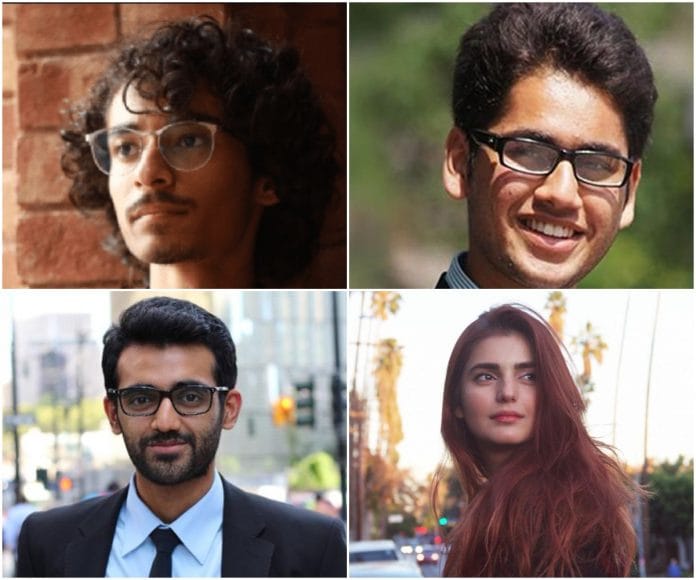Glimpses of Bhagat Singh’s final days in Pakistan opened to the public for the first time; and Pakistan’s antibiotics consumption up by 65%.
Nine Pakistanis shine in Forbes Asia list of ‘30 under 30’
Forbes Asia’s ‘30 under 30’ list for 2018 features nine Pakistani game-changers and young innovators under the age of 30.
The list includes 26-year-old Momina Mustehsan of Coke Studio, Pakistan, who is a musician and a women’s rights activist. Muhammad Shaheer Niazi (17) also made it to the list for inventing a way to photograph the movement of ions forming a honeycomb-like shape when electrically-charged particles try to pass through a pool of oil.
Young Pakistani entrepreneurs such as Hamza Farrukh, who developed solar-powered water extraction and filtration system, and Syed Faizan Hussain, creator of American Sign Language translating software, Edu-Aid, also made it to the list.
Bhagat Singh’s case file displayed for the first time
Eighty-seven years after Bhagat Singh’s hanging for the murder of a British police officer, the records from his case file were opened to the public for the first time Monday.
Some documents related to the case involving Bhagat Singh, Sukhdev and Rajguru have been put on display by the Punjab Archives Department in Lahore. The records include Bhagat Singh’s request for providing the court order dated 27 August, 1930, the petition of Sardar Kishan Singh, father of Bhagat Singh, against the death sentence of his son, the certificate/execution of death of Bhagat Singh in Lahore district jail by the superintendent of jail dated 23 March, 1931 among others.
Antibiotics consumption up by 65%
A recent study conducted by the Proceedings of National Academy of Sciences (PNAS) showed that Pakistan’s consumption of antibiotics rose by 65 per cent from 2000 to 2015. The study released Monday is based analysis on sales data for 76 countries. The research team including scientists from Johns Hopkins University, and Center for Disease Dynamics, Economics and Policy in the US pointed out that low- and middle-income countries like Pakistan needed to invest in alternative treatments, sanitation and vaccination.
The authors of the study stressed on the need to keep the effects of climate change in mind to assess the use of antibiotics in future. “As more and more countries gain access to these drugs, these rates will only increase and that will drive resistance rates higher,” Eili Klein, one of the authors of the study, was quoted as saying by GEO news.
Speech on protecting Hindu minority goes viral again
A 2015 video of Lal Chand Malhi, a Hindu Member of the National Assembly in Pakistan, giving a speech in a Parliament session about the discrimination that Hindus face in Pakistan is going viral on Twitter.
In his speech Malhi had pointed out that the Hindu minority did not receive equal respect in the country. This was in response to the comments of some Muslim members of the ruling party teasing Hindu party members of the assembly as “cow worshipers”.
Malhi also tried to draw the distinction between Hindus and Indians. Reminding the assembly of the difference between religion and nationality, Malhi said, “We are Pakistani, aren’t we…they want to abuse Indians, but instead they end up abusing Hindus. What is our fault?”






